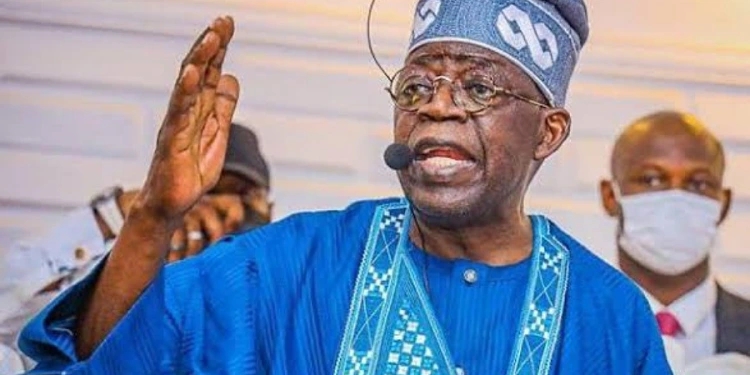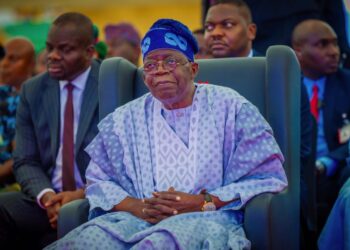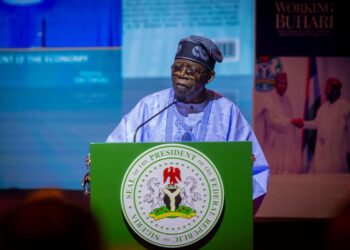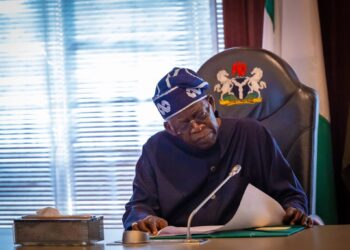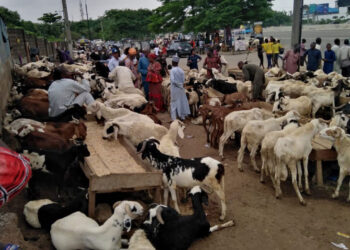Article Summary
- Tinubu administration should make maximum use of the capital market.
- The major challenge that confronts the new administration if desirous of creating wealth and generating productive employment is the revival of the primary market.
- Equity trading on the Nigerian Exchange Limited (NGX) finished the first four months of the year in the green territory as the NGX All-Share Index appreciated by 2.25% to close at 52,403.51 index points.
Just a few weeks left for the change of government on May 29th, 2023, some capital market operators have agreed that for the market to regain its pride of place as a center for capital formation the president-elect, Bola Ahmed Tinubu must redirect the market in a way that would bring back the lost glory.
With the sell-pressure that has characterized the Nigerian equities market in recent times, there are concerns among market watchers that transactions in equities might further dip if adequate measures are not taken to salvage the market.
Key among the issues they consider pressing in the economy at large and the capital market include, rising inflation and interest rates, the inability of the government to make maximum use of the capital market, and multiple exchange rates, among others.
Maximum use of the capital market
The Managing Director, of Crane Securities Limited, Mr. Mike Eze, speaking to Nairametrics in an exclusive chat said that market operators expect that the Tinubu administration should make maximum use of the capital market, adding that before now, Nigerian government especially at the federal and state levels have given a blind eyes to raising capital from the stock market to fund crucial infrastructures.
- “Most infrastructural development such as roads, hospitals, and academics, among others were executed via loans from both local and international financial institutions. They rarely look at sourcing capital from the local bourse, which is the cheapest avenue for raising long-term funds. This incoming government by implication should understand that the capital market is an avenue of raising long-term funds with little or no costs,” Eze said.
He noted that as a governor of Lagos State in 1999, Tinubu made adequate use of the capital market, noting that the popular Sura market in Lagos Island was built with funds raised from the equity market.
- “He should make the market intertwine with government expenditure and with that, we will have a vibrant economy. Nigeria is the largest economy in Africa, the incoming president should realize that he should make Nigeria a one-stop investment destination in Africa.
- He should also through friendly policies encourage foreign investors to return to the market by making them realize that the Nigerian economy has so much potential and attraction to make their investment viable.
- Tinubu should make the world realize that Nigeria is now part of a competitive global environment with a basket of investment avenues that any investors coming from outside Nigeria would like to diversify their funds into and they will yield appreciable dividends.
- The new government through the Ministry of Finance should structure the processes of bringing liquidity from the money market to the capital market by way of margin lending,” he said.
Challenging issues
The Managing Director, of Arthur Steven Asset Management Limited, Mr Olatunde Amolegbe, in an interview with Nairametrics listed the expectations of market operators to include the need for the administration of Tinubu to address the issues of debt overhang, multiple exchange rate and government revenue.
Those are the challenging issues that are obvious to everybody in this country, they represent low-hanging fruit for the incoming administration to address very quickly to get the government on track. Addressing the issues will improve government revenue and enable them to carry out some of their agenda. It will encourage foreign investors to start taking a second look at the Nigerian capital market again.
Amolegbe noted that the combination of some of these issues and some other factors has led to a situation where foreign participation in the market has dipped significantly.
- “We used to have foreign investors’ participation close to 55% of market turnover but they are now doing less than 10%. So that needs to be changed, and we know that addressing these issues will help change the momentum and get the foreign investors back in our market.
- I think what we need as an industry is for the government to put the right policies in place. We want policies that will increase market liquidity. Tinubu’s government should quicken the pace of privatization of public enterprises which has come down significantly. That will improve the market liquidity and government revenue.
- We will want policies that will allow margin lending to come back to the market, margin lending improves market liquidity.
- The new government should also look at the issue of multiple taxations that investors are suffering due to tax regime that is not properly codified,” he said.
Reconstruction of the economy
Mr. David Adonri, Executive Vice Chairman of Hicap Securities Limited said that it was clear that some of the policies and options made by the present administration have not worked to make the stock market viable.
According to him, the capital market has two sessions, the primary and secondary markets, in the past number of years, following the global financial meltdown in 2008, the Nigerian primary market especially for equities has practically been inactive.
- “Market activities have since then concentrated on the secondary market. Consequently, the capital market since the global meltdown in 2008 has catered to the investment need of investors only. As a result of the inactivity of primary capital formation, the economy has been at a low ebb. The essence of the capital market in providing capital for the production economy since 2008 has been defeated,” he said.
He explained that the major challenge that confronts the new administration if desirous to creating wealth and generating productive employment is the revival of the primary market.
According to him, such a task will require the reconstruction of the economy to bring inflation and interest rates lower to a single digit so that the equities market can establish a competitive edge over the debt market.
What you should know
Equity trading on the Nigerian Exchange Limited (NGX) finished the first four months of the year in the green territory as the NGX All-Share Index appreciated by 2.25% to close at 52,403.51 index points.
Despite the rising inflation, interest rate hike, Naira redesign, and above all 2023 general election jittery which were expected to further dampen the market confidence in the nation’s local bourse equity, investors increased their buying pressures on the expectation of the impressive full-year 2022 corporate earnings results.

